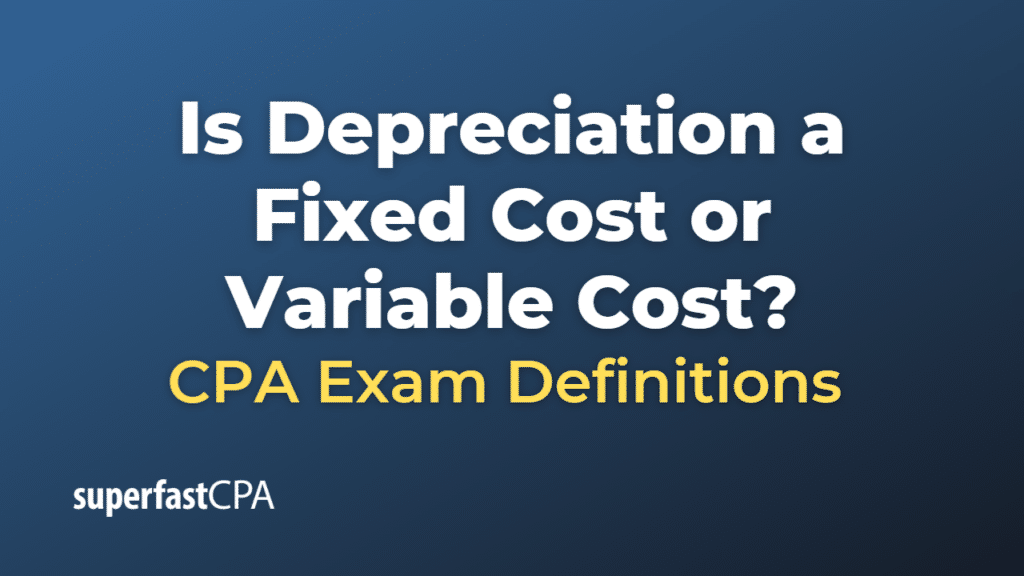Is Depreciation a Fixed Cost or Variable Cost
Depreciation is generally considered a fixed cost. It’s a non-cash expense that represents the reduction in value of a tangible asset over its useful life, and it typically does not change based on the volume of goods or services produced.
Whether the company is producing high volumes or no product at all, the depreciation expense typically remains constant. For example, if a business purchases a machine for $100,000 with a 10-year lifespan and no salvage value, the annual straight-line depreciation would be $10,000 ($100,000/10 years) regardless of how much the machine is actually used in any given year.
However, in some cases, companies might use an activity-based depreciation method like units of production depreciation, where the depreciation expense would vary based on the level of activity. For example, a delivery truck might depreciate faster if it is driven more miles. But even in such cases, depreciation is generally still considered a fixed cost because it’s based on the passage of time or use of the asset, not on the volume of production.
As always, the exact accounting can depend on the specific rules and policies applicable to a particular company or situation. It’s always a good idea to consult with a qualified accountant or financial advisor for advice based on the specific situation.
Example of: Is Depreciation a Fixed Cost or Variable Cost
Here’s an example to illustrate why depreciation is generally considered a fixed cost.
Let’s say a company purchases a delivery truck for $50,000. The truck is expected to have a useful life of 10 years, after which it will have no salvage value. The company uses straight-line depreciation, which means the truck’s value will be depreciated evenly over its useful life.
So, the annual depreciation expense for the truck will be $5,000 ($50,000 divided by 10 years).
Here’s the key point: This annual depreciation expense is a fixed cost. It doesn’t matter how much the company uses the truck—whether it’s driven 5,000 miles or 50,000 miles in a year—the annual depreciation expense remains $5,000.
This is because the depreciation expense is determined by the passage of time (each year that goes by), not by the volume of activity (the number of miles driven). That’s why depreciation is typically classified as a fixed cost.
Now, if the company used a method of depreciation that is based on the truck’s usage, like the units-of-production method, then the depreciation could vary based on how much the truck is used. But even then, it’s generally still considered a fixed cost, because it’s based on the use of the asset (miles driven), not on the company’s level of output or sales.













